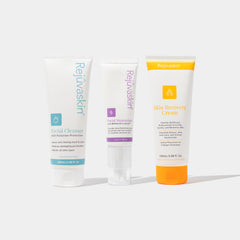For pet lovers who also manage eczema, finding a balance between furry companions and healthy skin can feel challenging. Pet allergens, dander, and environmental triggers can exacerbate eczema symptoms, but with the right strategies, you can enjoy your pets while keeping flare-ups under control. This guide will explore the connection between pets and eczema, practical tips for minimizing triggers, and strategies to manage skin health.
The Connection Between Pets and Eczema
How Pets Affect Eczema
Pet allergens, such as dander, saliva, and urine, can irritate sensitive skin and contribute to eczema flare-ups. Pets may also introduce environmental irritants like pollen and dust into the home, compounding potential triggers (Hon et al., 2016).
The Benefits of Pet Ownership
Despite potential challenges, pets offer numerous mental health benefits, including reduced stress and anxiety, which are known to influence eczema severity. For many, the emotional support pets provide outweighs the risks, making proper management essential. (Hussain et al., 2024).
Practical Tips for Managing Eczema with Pets
1. Create Pet-Free Zones
Designate certain areas, such as your bedroom, as pet-free to reduce allergen exposure during sleep. Regularly clean and vacuum these spaces to maintain a low-allergen environment.
2. Invest in an Air Purifier
HEPA-filter air purifiers can significantly reduce airborne allergens, improving air quality and minimizing triggers.
3. Bathe and Groom Pets Regularly
Frequent bathing with hypoallergenic pet shampoos helps reduce dander. Brushing pets outdoors minimizes the spread of allergens indoors.
4. Practice Consistent Cleaning
- Vacuum carpets and upholstery with a HEPA-filter vacuum.
- Wash pet bedding and toys regularly.
- Use washable covers on furniture and remove excess rugs or drapes that can trap allergens.
5. Strengthen Your Skin Barrier
Daily use of a high-quality moisturizer, like Rejuvaskin’s Skin Recovery Cream, helps maintain skin hydration and resilience. This step is crucial in protecting against environmental irritants and allergens. (van Zuuren et al., 2017).
Cohabitation Strategies: Balancing Pet Love and Skin Health
Evaluate Sensitivities
If eczema symptoms persist despite preventative measures, consider allergy testing to confirm sensitivity to specific pet allergens. This can guide more targeted management strategies. (Hon et al., 2016).
Limit Contact During Flare-Ups
During active eczema flare-ups, limit direct pet contact to prevent irritation. Use gloves or wash hands thoroughly after handling pets.
Non-Furry Pet Alternatives
For individuals with severe sensitivities, non-furry pets like fish or reptiles offer companionship without allergenic risks (Hon et al., 2016).
The Role of Rejuvaskin Products in Eczema Management
Managing eczema requires a multi-faceted approach that includes effective skincare. Rejuvaskin’s Skin Recovery Cream is an option that:
- Provides deep hydration to repair the skin barrier.
- Soothes irritation caused by environmental triggers.
- Is fragrance-free and non-irritating, making it ideal for sensitive skin.
Incorporating products like Rejuvaskin into your daily regimen helps prevent flare-ups and ensures your skin stays protected and nourished.
Living with eczema and pets doesn’t have to be mutually exclusive. By minimizing triggers, adopting consistent skincare practices, and using products like Rejuvaskin’s Skin Recovery Cream, you can manage flare-ups and enjoy the companionship of your furry friends. If symptoms persist, consult a dermatologist or allergist for personalized advice.
Works Cited
- Hon, K., Tsang, Y. C., Pong, N., & Leung, T. (2016). Childhood eczema and household pets: A literature review. Drugs & Therapy Perspectives. Link
- Hussain, N., Bhatti, A. N., Khan, B. N., Siddiqa, A., Azhar, S., & Zahra, T. (2024). Survey on eczema; Its perceptions and characterization. Pakistan BioMedical Journal. Link
- van Zuuren, E. V., Fedorowicz, Z., & Arents, B. (2017). Emollients and moisturizers for eczema: Abridged Cochrane systematic review including GRADE assessments. British Journal of Dermatology. Link





















Leave a comment